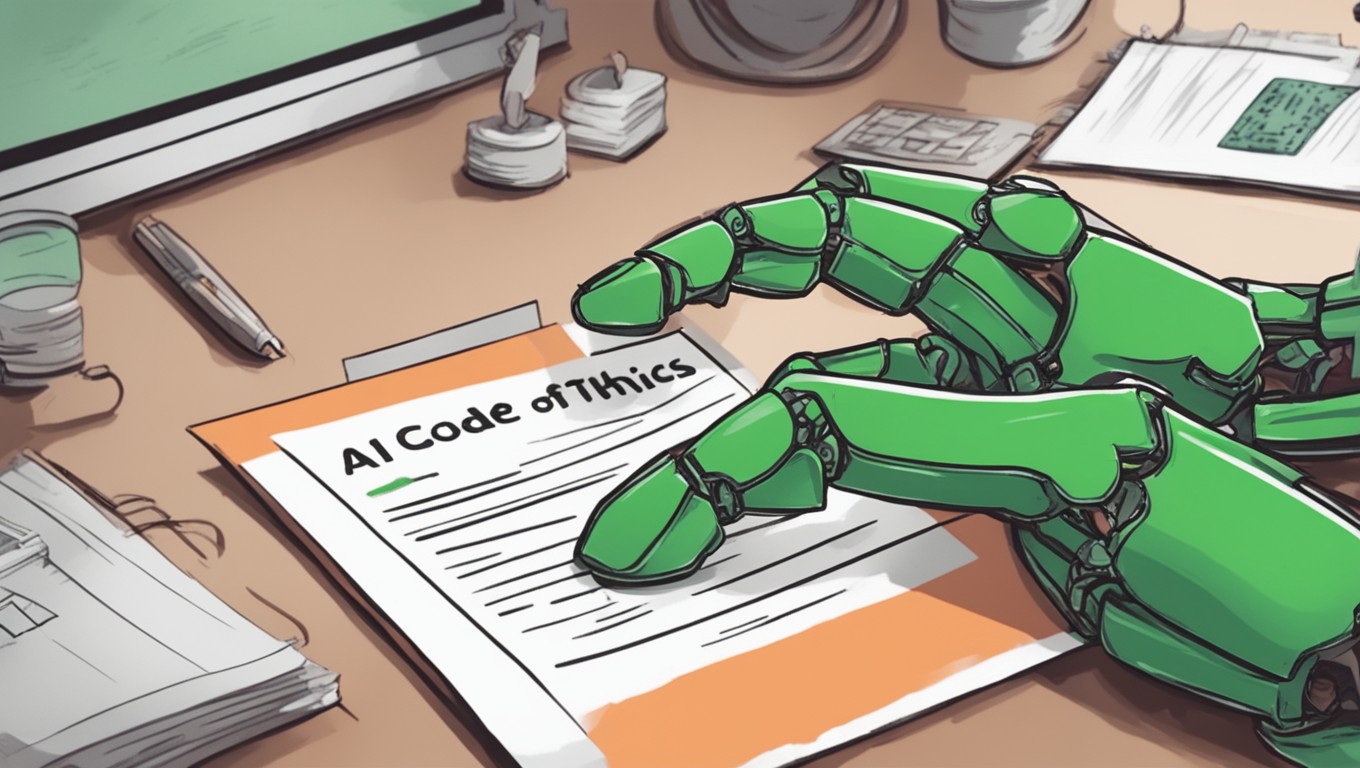India is taking proactive steps towards creating an ethical future for artificial intelligence (AI). The Ministry of Electronics and Information Technology is developing a set of voluntary codes of conduct and ethics for companies working with AI or generative AI, according to sources. These codes will serve as “informal directive principles” for companies, particularly those involved in building large language models (LLMs) or using data to train AI and machine learning models.
While a specific law on AI may still be some time away, the government aims to establish a common set of principles and guidelines that the industry can adopt. The voluntary code of conduct is expected to be released early next year. It will cover various aspects, including measures for training, deployment, and commercial sale of AI systems, as well as strategies to identify and rectify any potential misuse of LLMs and AI platforms.
India seeks to learn from the experiences of other countries in this field. The G7 members have already developed an 11-point code of conduct for companies operating in the AI and generative AI space. Although India’s code will be different, the underlying principle remains the same—to ensure responsible and ethical practices in AI development.
Earlier this year, the Ministry of Electronics and Information Technology issued an advisory urging platforms to prevent bias, discrimination, or any threat to the integrity of the electoral process. The advisory specifically mentioned the use of AI, generative AI, LLMs, and other algorithms. It also required companies to seek explicit permission from the government of India before deploying AI models, LLMs, or beta-stage software on the Indian internet.
However, the advisory has since been withdrawn, and the requirement for AI and LLM registration before deployment has been dropped. With the upcoming voluntary code, the government aims to establish a more comprehensive and balanced approach to regulating AI in India.
This initiative by India reflects the global trend of governments recognizing the need for responsible AI development. As AI continues to play an increasingly significant role in various industries, ethical considerations become paramount. By establishing voluntary codes of conduct and actively involving stakeholders, India is forging a path toward an ethical AI future.
In the words of an official involved in the process, “A law on AI is still some time away. We are talking to all stakeholders right now to see what can be included and trying to get the industry onboard on a common set of principles and guidelines.” This demonstrates India’s commitment to ensuring that AI development aligns with ethical standards and addresses potential risks and concerns.
As the government continues its efforts to create an ethical AI ecosystem, companies in India will have the opportunity to proactively adopt these voluntary codes of conduct. By doing so, they can not only demonstrate their commitment to responsible AI practices but also contribute to building public trust in AI technologies.
India’s approach to AI regulation highlights the importance of collaboration between the government and industry stakeholders. By seeking input from various parties, India aims to strike a balance between promoting innovation and safeguarding ethical considerations.





Use the share button below if you liked it.